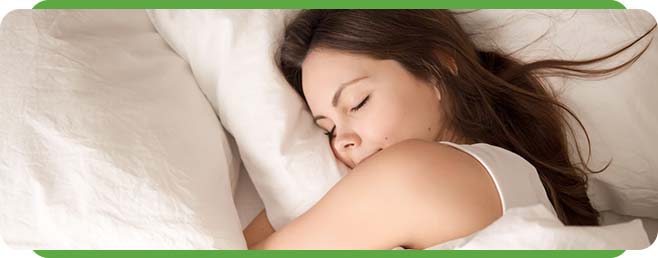What to Expect at a Sleep Center?
Sleep disorders are fairly common but can be difficult to assess, diagnose, and treat because people aren’t able to track what exactly is happening physiologically while they sleep. Sleep clinics like Koala® Center For Sleep & TMJ Disorders provide sleep studies in which patients sleep at the clinic and are observed and monitored in order to provide all necessary information regarding their sleeping patterns, habits, and what their body is doing while they are sleeping. For more information contact us or book an appointment online. We have convenient locations across the U.S. in Bloomington IL, Peoria/Dunlap IL, El Paso TX, and Wausau WI




Table of Contents:
What should you expect at a sleep center?
How long do you need to sleep for a sleep study?
How do I prepare for a sleep study?
Sleep centers are able to treat a variety of disorders that have an impact on your ability to have good quality sleep, such as temporomandibular joint (TMJ) disorders, sleep apnea, snoring, restless legs syndrome, and migraines. Sleep clinics will offer sleep studies, which are used to monitor the brain activity, breathing patterns, and any body movements of the patient while they sleep through the use of painless sensors that are just stuck with adhesive to parts of the head and body. The sleep center will provide comfortable rooms to try to ensure that the patients are able to sleep so that they are able to gather sufficient data. Once all necessary data has been collected, the technologist and specialists will analyze the data and schedule another appointment with you to go over the results and different treatment options. It may take a couple of weeks in order to receive these results depending on the capacity of the sleep clinic, but they will be able to provide you with multiple treatment options that will likely end up being life changing in the quantity and quality of sleep that you will be able to achieve down the road.
The more data that the technologists and sleep specialists are able to receive the better, but they only need about two hours of data in order to provide effective treatment options. It is fairly common for patients to feel a bit nervous or anxious about the process, potentially getting in the way of their ability to fall asleep and stay asleep throughout the entire night, so there are circumstances where the technician or specialist will provide medication to help the patient fall asleep. It is not expected that your night at the sleep clinic will provide you with the best quality sleep ever as it is a new environment and patients have equipment hooked-up to various parts of their body which may limit movement or being able to find a comfortable position to sleep. However, anxiety around not getting enough sleep in order to provide sufficient data is rarely an issue because such little sleep is actually required in order to be able to provide accurate diagnoses and treatment options. If you have insomnia or are worried you will not be able to get at least 2 hours of sleep, your technician will need to know in case they need to make any changes or accommodations to the study process.
To ensure that you are sufficiently prepared for your night at the sleep clinic, it is important that you discuss any concerns or questions you may have regarding what to expect for the specific process that your physician uses well before the night of your study in case any accommodations need to be made (such as if you may require medication to help you sleep, if you are unable to sleep on your back, etc.). You will likely be welcomed to your new bedroom for the study sometime in the evening and will stay there until around 6:00am the following day, so you will need to bring anything you might need that is a part of your normal nightly routine as that should stay as consistent as possible to provide accurate test results. There will be a TV available in the room for those who watch TV before bed, but you are welcome to bring your phone if you tend to use it before bed as well, or any books or other hobbies that you would typically enjoy doing in the evenings. The day of the study, you will be asked to avoid consuming any caffeine (coffee, tea, etc.) or alcohol after noon that day to prevent affected results. Avoid taking any naps that day to help you be able to fall asleep a bit more easily, and avoid wearing gels, hair sprays, or oils that may prevent adhesives from sticking as that is how the technician is able to gather data comfortably while you sleep.

Additional Services You May Need
▸ KoalaKIDZzz®
▸ Sleep Apnea
▸ Snoring
▸ TMJ Disorder
▸ Fatigue
▸ Sleep Disorders
▸ Weight Loss
▸ CPAP Alternative
▸ Oral Appliances




